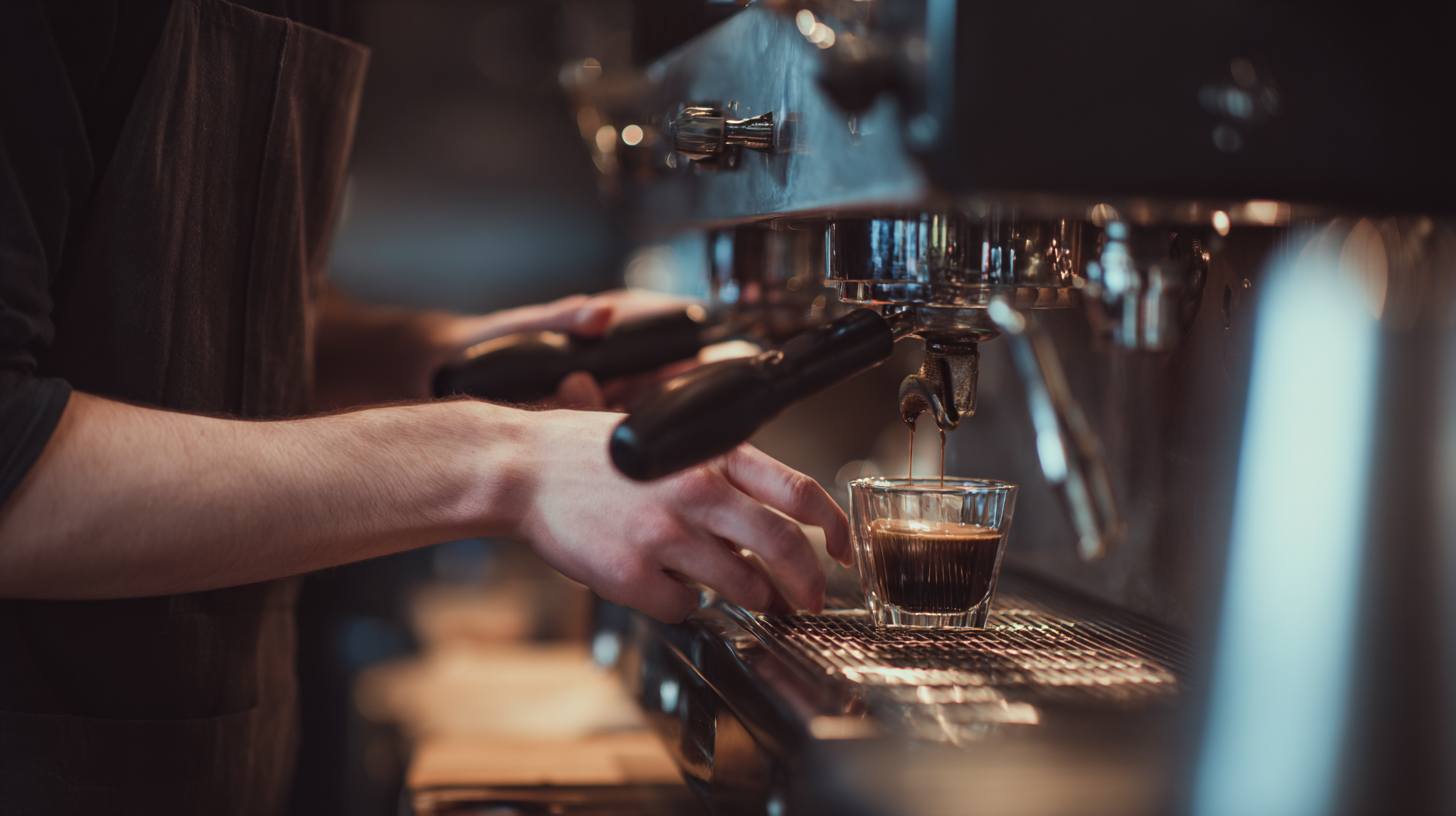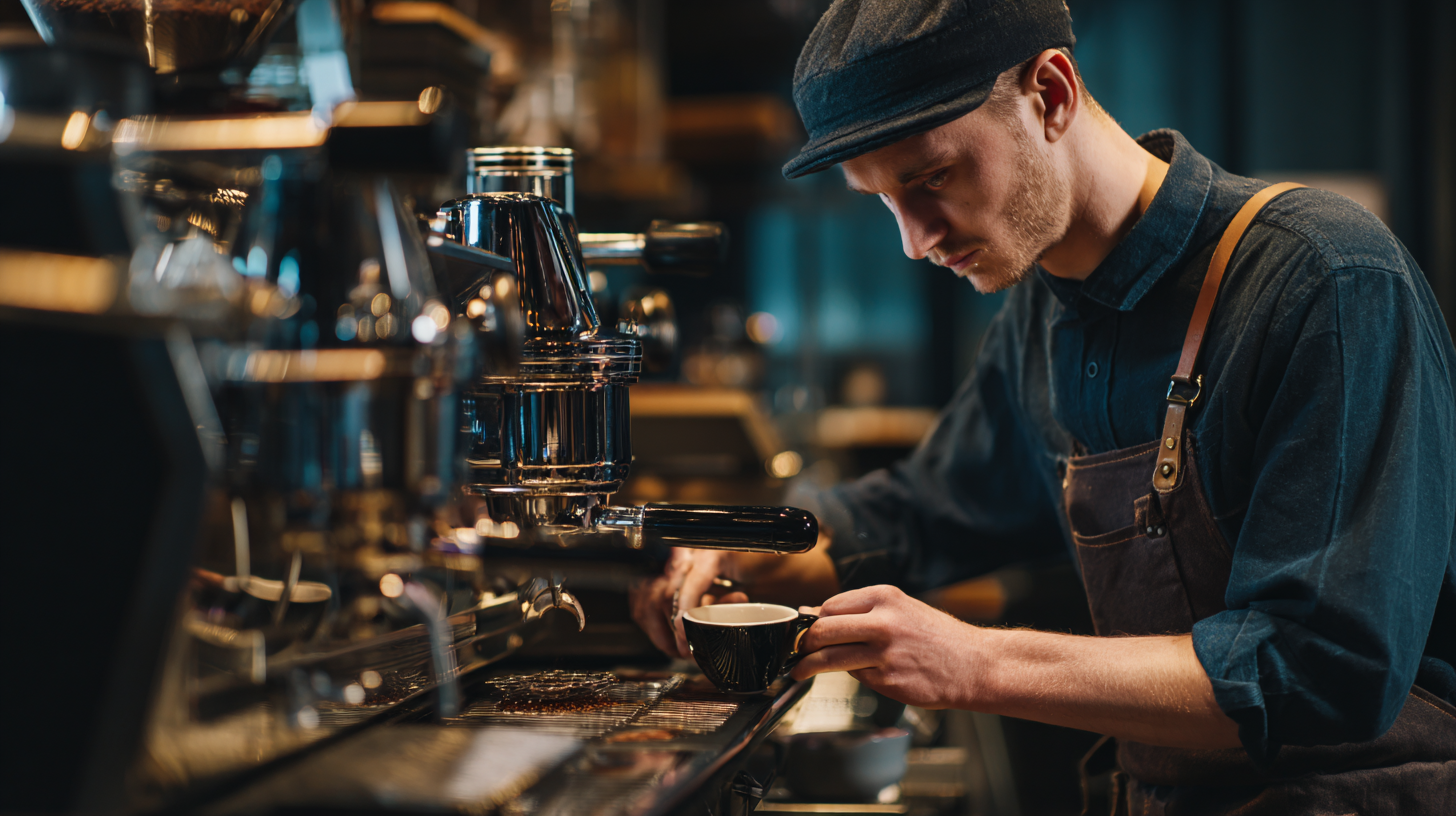

Top Strategies for Sourcing the Best Barista Coffee on a Global Scale
The global market for Barista Coffee is anticipated to witness substantial growth, reaching an estimated value of $100 billion by 2025, according to a recent report by Market Research Future. This surge can be attributed to the rising demand for specialty coffee and the growing culture of coffee consumption across diverse demographics. With consumers increasingly seeking quality, flavor, and unique coffee experiences, sourcing the best Barista Coffee has never been more critical for businesses aiming to thrive in this competitive landscape.

To meet this demand, companies must adopt innovative sourcing strategies that not only capitalize on premium coffee beans but also foster sustainable practices and transparency in their supply chains. By navigating the complexities of global sourcing, businesses can ensure they offer the highest quality Barista Coffee while catering to the evolving preferences of coffee aficionados around the world.
Innovative Sourcing Techniques for Premium Barista Coffee Worldwide
In the ever-evolving landscape of premium barista coffee, innovative sourcing techniques have become crucial for coffee connoisseurs looking to elevate their offerings on a global scale. Many companies are embracing sustainable practices and utilizing advanced technology to enhance quality while reducing their environmental impact. Recent reports indicate a significant increase in consumer demand for ethically sourced coffee, which has prompted industry leaders to focus on transparency in their supply chains. For instance, the market for specialty coffee is expected to grow at a CAGR of 12% over the next five years, emphasizing the need for businesses to adapt their sourcing strategies effectively.
Tips for sourcing premium barista coffee include forging direct relationships with farmers and participating in initiatives that promote fair trade. Building a robust network with growers not only helps secure quality beans but also ensures that the coffee is sourced sustainably. Additionally, investing in innovative roasting technologies can significantly enhance the flavor profiles of the coffee. This aligns with the trend of increasing consumer interest in unique and diverse coffee experiences, with many individuals seeking out flavors that reflect the heritage of their origins.
Furthermore, as businesses expand globally, focusing on local market preferences when curating coffee offerings can create a more tailored customer experience. Engaging with consumers through tasting events and educational workshops can also deepen their appreciation for premium coffee while boosting brand loyalty. By leveraging these innovative techniques, businesses can effectively position themselves in the competitive global coffee market, maintaining a strong commitment to quality and sustainability.
Evaluating After-Sales Service Benefits in Coffee Supply Chains
 When sourcing the best barista coffee on a global scale, evaluating after-sales service benefits in coffee supply chains is crucial. An efficient after-sales service can significantly enhance the overall partnership between suppliers and cafes. Customers expect not just a great product, but also a responsive support system that addresses their needs and concerns promptly. This support can range from troubleshooting equipment issues to providing training on coffee preparation techniques, ultimately ensuring that the end product meets high standards of quality.
When sourcing the best barista coffee on a global scale, evaluating after-sales service benefits in coffee supply chains is crucial. An efficient after-sales service can significantly enhance the overall partnership between suppliers and cafes. Customers expect not just a great product, but also a responsive support system that addresses their needs and concerns promptly. This support can range from troubleshooting equipment issues to providing training on coffee preparation techniques, ultimately ensuring that the end product meets high standards of quality.
Moreover, exceptional after-sales service helps build loyalty among coffee buyers, who often seek reliable partners for their sourcing needs. In a competitive market, suppliers that offer comprehensive support are more likely to stand out. For instance, regular follow-ups, consistent communication, and on-site visits can help establish trust and confidence, ensuring that any problems are swiftly addressed. This adds value beyond just the coffee itself, as it fosters a deeper connection between producers and baristas, elevating the coffee experience for customers. Implementing robust after-sales strategies could thus turn a one-time client into a long-term partner.
Managing Maintenance Costs for Coffee Equipment and Machinery
When operating a coffee shop or roastery, managing maintenance costs for coffee equipment and machinery is crucial for sustaining profitability. Regular maintenance is not merely an additional expense; it’s an investment that ensures equipment operates efficiently and prolongs its lifespan. Developing a strategic maintenance schedule tailored to each piece of equipment can significantly reduce unexpected breakdowns. This includes routine cleaning, timely servicing, and replacement of worn-out parts, which can save your business both time and repair costs in the long run.
Additionally, leveraging technology can be a game-changer in managing these costs. Cloud-based maintenance management systems allow for better tracking of equipment performance and maintenance history. This data-driven approach enables coffee businesses to identify potential issues before they escalate, thereby minimizing downtime and costly repairs. Moreover, training baristas and staff on proper handling and care of the equipment not only empowers them but also ensures that the machinery remains in optimal condition, further curtailing maintenance expenses. By prioritizing a proactive maintenance strategy, businesses can not only protect their investments in equipment but also enhance the overall quality of the coffee they serve.
Top Strategies for Sourcing the Best Barista Coffee Globally
The Future of Global Barista Coffee Sourcing and Sustainability
The future of global barista coffee sourcing is intricately linked to sustainability, as consumers increasingly demand ethically sourced products. Coffee production has significant environmental impacts, from deforestation to water consumption. To meet the growing expectations for sustainable practices, coffee sourcing must evolve. This evolution includes implementing more eco-friendly farming techniques, such as agroforestry, which promotes biodiversity and restores ecosystems while simultaneously enhancing coffee quality.
Moreover, the role of technology in sustainability cannot be overlooked. Innovative platforms that connect producers directly with consumers or roasters can help ensure fair pricing and reduce the carbon footprint associated with transportation. Blockchain technology may also provide transparency in the supply chain, allowing consumers to trace the origin of their coffee and ensure it aligns with their values. By adopting these strategies, the coffee industry can contribute to a healthier planet while satisfying the discerning palates of baristas and coffee lovers globally.
Top Strategies for Sourcing the Best Barista Coffee on a Global Scale - The Future of Global Barista Coffee Sourcing and Sustainability
| Sourcing Strategy | Region | Sustainability Practices | Quality Indicator | Average Price per Kg |
|---|---|---|---|---|
| Direct Trade | South America | Organic Farming | High | $12.00 |
| Indirect Trade | Africa | Fair Trade | Medium | $10.50 |
| Sustainable Sourcing | Central America | Rainforest Alliance Certified | High | $11.00 |
| Community Trading | Asia | Ecologically Sound Practices | Medium | $9.00 |
| Origin Partnerships | South Asia | Biodynamic Farming | High | $13.50 |
Leveraging Technology to Enhance Barista Coffee Sourcing Strategies
In the evolving landscape of global coffee sourcing, leveraging technology has become essential for businesses to enhance their strategies. Digital tools enable companies to ensure sustainability and traceability in their supply chains, critical for meeting the demands of conscious consumers. A report from the Specialty Coffee Association indicates that 90% of consumers consider the ethical sourcing of coffee important, emphasizing the need for transparency in operations. For instance, innovative digital traceability tools allow businesses to track the origins of their coffee beans, ensuring that producers adhere to sustainable practices.
Moreover, technology can drive collaboration between farmers and suppliers, fostering fair trade and supporting local economies. Blockchain technology has been highlighted as a game-changer for enhancing transparency in coffee sourcing, with studies showing that it can significantly improve sustainability outcomes in global value chains. By adopting these technological advancements, companies not only bolster their brand integrity but also contribute to improving the livelihoods of coffee-growing communities, thereby creating a more resilient industry in the face of climate change and market volatility.
